Is Coffee Harmful? The Good, The Bad, and the Dirty Coffee

For years, Science has cautioned that there are detriments to drinking coffee. [1]
More recently, Science says there are substantial benefits to drinking coffee [2].
So, what is it? A healthy beverage? Is coffee harmful?
Most people are ill-equipped to reconcile contradictory Science. Both sides can be right, and both sides can be wrong, and both sides can be partly right/wrong.
Let’s solve this “damned if you do, damned if you don’t” conundrum. Plus, let’s discover how to maximize coffee’s benefits and minimize the detriments.
To accomplish this fantastic inductive and deductive feat of discernment, we need to “set the way-back machine” a hundred years to better understand the fundamentals of herbology.
Therapy.
Coffee is a therapeutic herb that affects different people in different ways. Today we understand this as the individual’s unique epigenetic response.
A therapeutic herb has medicinal properties that can modify mood, energy, other cellular metabolic functions, and create symptoms in susceptible people. “One person’s meat is another person’s poison.”
Is Coffee Harmful? 250 Years In The Making.
Dr. Sam Hahnemann wrote a discourse about coffee’s allopathic and homeopathic influences on the body in 1803 [3]. Today, his insights have honored the world over, and with a stately monument in Washington, D.C. He did not condone the use of coffee (or any therapeutic herb) as a frequent, recreational beverage. He provided some keen insights worthy of consideration. Today, Science marches on with enlightening studies and information.
Coffee, cannabis, chocolate, tea, tobacco, are all therapeutic herbs and deserving of consideration once we honor the laws of therapeutic herbology. All require “prudence and judgment” in their potential uses.
Is Coffee Harmful? Genes.
How good or bad coffee is for you, is in your DNA and natural epigenetic processes. So, if you are wondering if coffee is right for you, the answer is found in your experience of coffee.
Does it cause an uncomfortable buzz or a welcome perk? Are you “not ready for the day” until you’ve had your cup or two? Do you need it, or enjoy it?
Does it interfere with a good night’s sleep? Do you get headaches if you miss a day or two? Do you require it to have a bowel movement?
The less you rely on coffee—the less you need a reason—the better it is for you.
Coffee Addiction.
Frequent manipulation of your body’s natural life processes with coffee—bowel movements, mood, sweat, body odor, over-driven revving of energy, temporary happiness, saying things you shouldn’t—means you can become dependent on coffee [4].
But a perky, enjoyable cuppa java, that does not cause significant reactions can mean gaining the benefits of an herbal beverage without adaptational side effects.
Let’s examine the flip side of our QuirkyHealthTips.com blog: Coffee—7 Tips To Maximize The Benefits and view it from the “Avoid” side.
Is Coffee Harmful? Avoid Pre-Ground Coffee.
Use the whole bean. Grind it fresh. Discussions abound about the superiority of the roasted bean flavor, but here, we’ll say that flavor’s essential, but health is paramount.
From our natural health perspective, we don’t want the oils in the coffee bean to become oxidized, which happens more with the pre-ground. Oxidation damages the nutritional value of coffee’s oils, which counters coffee’s antioxidant potentials and may even cause free-radical damage to cell membranes.
Roasting the bean is damage enough [5] with regards to unwanted acrylamide in dark roast coffee. Fresh-ground is a step in a positive direction.
Plastic Coffee Makers & Paper Filters Add Toxins to your brew [6].
One reason that organic, French press coffee can be cleaner—it does not involve neuro-toxic plastic, and paper filters (chemicals, bleaching agents). It also avoids molds that can grow in plastic coffee machines.
The principle of filtering coffee is to strain out the ground particles, so your drink isn’t crunchy. Filters also remove components of Nature’s balance in the whole bean – antioxidants and trace nutrients—so filters inadvertently cause collateral damage to the nutritional value of your brew.
So, is coffee harmful? The short-sighted thought that “a little bit of plastic, bleaching agents, and toxins won’t hurt” is errant. Every toxin matters. Especially when the environment, food, water, home furnishings, and cosmetics, all have undesirable chemicals. It all adds up to the straw that, sooner or later, breaks the camel’s back.
Avoid Non-Dairy Coffee Creamers.
Totally. They contain GMO corn syrup (glyphosate), cell-disrupting trans-fats (partially-hydrogenated fats directly linked to dread diseases), and chemicals such as dipotassium phosphate, which is FDA-approved but can lead to renal calcification [7]. Instead, use raw, whole milk fresh from your local cow, goat, or camel.
A step down from Nature’s natural milk is the organic milk at your local grocery store. But be wary. (Learn about cow-flipping practices and how some organic dairies—Horizon [8], Organic Valley [9], Aurora [10]—have been caught cheating on the organic rules.)
For Natural Health, it’s wise to avoid CAFO (Concentrated Animal Feeding Operations) milk altogether. This commercial milk comes from cows fed antibiotics, GMO corn (glyphosate), and cow blood; and often injected with growth hormones, vaccines, and drugs to keep them alive in non-viable confinement. They often lead miserable lives in a tiny stall being milked-out before heading to the hamburger grinder.
Further, store-bought milk is pasteurized, a practice that destroys or harms innate beneficial bacteria and vitamins. It’s also homogenized, a process that creates micro-fat particles linked with inflammation. Drs. Weston Price and Francis M. Pottenger demonstrated that this kind of milk generates congenital disabilities in cats and other animals over a few generations.
Avoid Sugar.
One lump or two? The answer is none. On the avoid list, this is a biggie. Stevia is a beneficial sweetener, and there are brands without the innate licorice-bitter aftertaste or use Lo Han Guo powder (a low-calorie fruit that’s powerfully sweet). Coffee black, hold the ketchup.
Avoid Tap Water.
Assay of municipal tap waters reveals a plethora of toxins [11]—chlorine, chloramines, fluoride, pesticides, fertilizers, chemicals, dioxins, heavy metals (mercury, lead, cadmium), petrochemicals, plastics, prescription drugs, radioactive materials, and microorganisms. Use purified water as a step in the health-direction.
Avoid The Gulp Scald.
Remember in 1994 when 79-year old Stella Liebeck sued McDonald’s in a David VS Goliath engagement regarding burning her private-parts when she spilled her coffee? She won a half-million dollars and forced the giant corporation to make a safer product. Not so much about greed, the suit was an example of forcing a consumer-deaf corporation, and their team of power-lawyers pays attention to consumer safety.
That lawsuit brought coffee-temperature to the forefront. What does 190°F coffee do to your esophagus when you quickly gulp it past your tender tongue? Yep—it burns the heck out of it, but you don’t feel it so much — science links such scalding of the esophagus to esophageal cancer [12].
Empty Stomach.
Do you like to kick-start your morning with cuppa joe? Today, you can press an app on your cell phone and get your coffee machine a-grindin’ and a-brewin’ before your feet hit the fire-retardant carpet. If only the Zumba would bring it to the bedside.
But coffee on an empty stomach is not so great. Science demonstrates that coffee stimulates the stomach’s parietal cells to generate hydrochloric acid (HCl) vigorously [13], [14]. Without food to digest, HCl can result in excess stomach acid, and eventually can deplete of digestive power.
In Natural Health, Dr. Jonathan Wright [15] points out that low stomach acid causes most cases of acid reflux. Yes, low.
It seems the stomach acid tells the cardiac sphincter (the valve between the stomach and the esophagus) to close so that HCl does not burn the esophagus. However, when HCl is too low, the valve can stay open and expose the esophagus to HCl when laying down. Even the low HCl is too much burn for the esophagus.
It’s counter-intuitive that a person should lower stomach acid with antacids. Therefore, we find many successes with programs that restore proper HCl production.
Styrofoam & Plastic Cups.
Starbucks and other coffee companies must figure that their customer base doesn’t care. They make the daily grind a corporate spin.
While posturing to be “eco, environmentally friendly, fair trade, recycled materials, and responsibly grown,” however, they serve up non-biodegradable, toxic polystyrene tops.
The irony is that polystyrene, when heated, releases carcinogens [16]. And, it changes the taste of the coffee, unless you’ve already fried your tongue on that 190°F coffee. So, while the eco-cup is happily decomposing in the landfill, the lid will be there 500 years later reproducing rumors of tiny, disposable flying saucers.
Note: Starbucks has recently announced that it’s changing its lids to polypropylene, which stands up to heat better, but alas, it’s not biodegradable.
Organic.
As discussed in our sister blog on the benefits of coffee, organic coffee means avoiding health-damaging chemicals – Triadimefon (fungicide), Chlorpyrifos (organophosphate pesticide), Chlorpyrifos (organochlorine pesticide), and Endosulfan Methyl Parathion (organochlorine pesticide).
Unless you have mites, grubworms, and caterpillars in your stomach, you might be better off not imbibing poison-pesticides in your brew.
Is Coffee Harmful? What To Do?
Consider applying all the information in these two blogs. What would that be? You’d start with a scoop of light or medium-roast organic coffee and a scoop of organic de-caf. Grind it. Put it in a French press. Add purified, alkaline water heated to 178°F. Let it steep for 4 minutes (cool down to non-esophageal cancer temperature) and violà! Drink it in a non-plastic non-throw-away cup and have some sparkling conversation with friends and family.
If you’re bold and adventurous, you could include organic chicory, cocoa, cinnamon, or mushroom powder.
Is Coffee Harmful? It’s All About You.
To get coffee’s benefits without the detriments, dial in your methods to enjoy a clean, smooth cup of coffee, and avoid factors that cause future regrets. It’s ultimately all you—your genes, your choices, and your responsibility to your health and the Earth’s future. Something to think about over a cup of coffee.
References:
[1] Lyerly AD, Mitchell L, Armstrong EM, Harris LH, Kukla R, Kuppermann M, Little, MO; Risk and the Pregnant Body, Hastings Cent Rep, 2009, Nov-Dec; 39(6): 34-42. PMCID: PMC3640505 NIHMSID: NIHMS454246, PMID: 20050369
[2] Harvard T.H. Chan School Of Public Health, “Drink up. Health benefits of coffee.” https://www.hsph.harvard.edu/
[3] “On The Effects of Coffee” by Dr. Samuel Hahnemann
[4] Budney AJ, Brown PC, Griffiths RR, Hughes, JR, Juliano LM Caffeine Withdrawal and Dependence: A Convenience Survey Among Addiction Professionals, J of Caffeine Res. 2013 Jun; 3(2): 67-71. Doi: 10.1089/jcr.w013.0005. PMCID: MC3680976, PMID: 24761276
[5] Jung S, Kim MH, Park JH, Jeong Y, Ko, KS Cellular Antioxidant and Anti-Inflammatory Effects of Coffee Extracts with Different Roasting Levels, J. of Medicinal Food, Vol 20, No 6. Jun, 2017 https://doi.org/10.1089/jmf.2017.3935
[6] Pantsios A, Is Your Coffee Maker Toxic, EcoWatch, Feb 2, 2015
[7] Eberhard Ritz, Prof. Dr. med., Kai Hahn, Dr. med. Markus Ketteler, Prof. Dr. med.,Martin K Kuhlmann, Prof. Dr. med., and Johannes Mann, Prof. Dr. med. Phosphate Additives in Food—a Health Risk, Dtsch Arztebl Int. 2012 Jan; 109(4): 49–55. 2012 Jan 27. doi: 10.3238/arztebl.2012.0049, PMCID: PMC3278747 PMID: 22334826
[8] Michael, P Horizon Organic Milk: Is it All Just Lies? Wise Bread, May 15, 2007
[9] Inexpensive Technology Can Spot Fake Organic Milk. Will the USDA Look. Feb 9, 2018 The Cornucopia Institute
[10] Rachel, Joshua, Simply Nature Organic Grassfed Milk, Aldi Reviewer
[11] Corriher T, The Dangers of Tap Water, The Health Wyze Report
[12] Senthilingam, M Very hot drinks are probably carcinogenic, CNN Health, Jun 15, 2016
[13] Börger HW, Schafmayer A, Arnold R, Becker HD, Creutzfeldt W. The influence of coffee and caffeine on gastrin and acid secretion in man (author’s transl). Dtsch Med Wochenschr. 1976 Mar 19;101(12):455-7.
14 Kuz’menko LI, Bohdanova OV, Ostapchenko LI. Regulation of secretory processes in parietal cells in the different stomach pathologies. Ukr Biokhim Zh. 2006 Jul-Aug;78(4):80-8
[15] Dr. Jonathan Wright, Why Stomach Acid Is Good for You: Natural Relief from Heartburn, Indigestion, Reflux and GERD, August 20, 2001
[16] Huff J, Infante P. Styrene exposure and risk of cancer. Mutagenesis. 2011 Sep; 26(5): 583–584. doi: 10.1093/mutage/ger033 PMCID: PMC3165940, PMID: 21724974


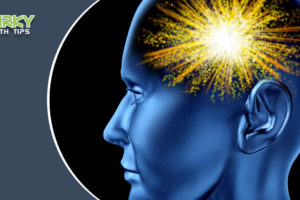


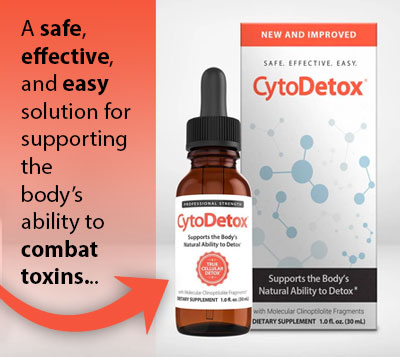
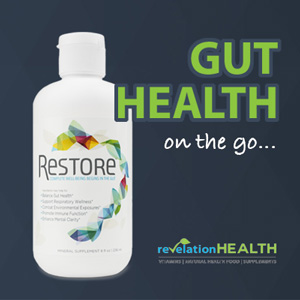
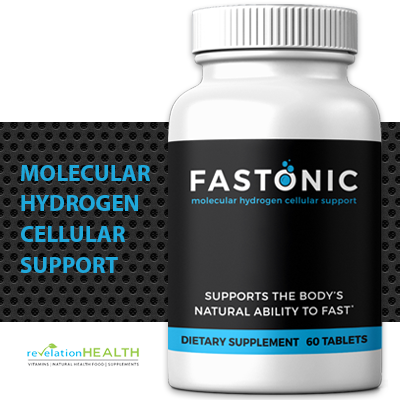
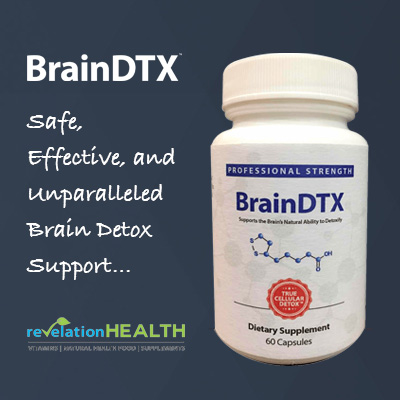
1 Comment
Leave your reply.